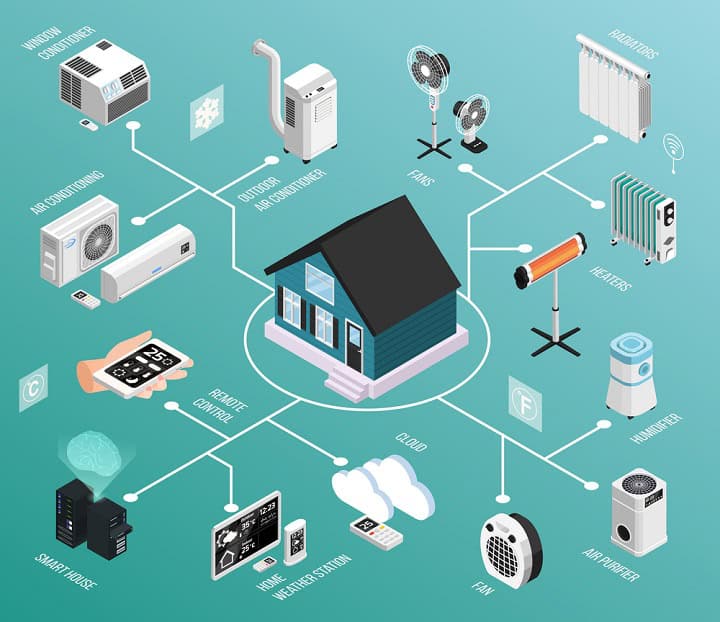Copeland has released findings from its second “Smart Home Data Privacy” survey. The study sought to understand the concerns and awareness levels regarding data privacy among smart thermostat users and non-users. Results indicate a rise in the ownership of smart home devices, such as thermostats, TVs, and appliances, when compared to data from 2022. There is also an increased concern among homeowners about data privacy in 2024.
Lisa Plaggemier, Executive Director of the National Cybersecurity Alliance, highlighted the growing interest in smart home products but noted a significant portion of users do not understand how data from these devices is collected and used. The survey revealed that 52% of homeowners are unaware of how smart thermostat data is managed, a figure that underscores the need for transparency from manufacturers.
The survey also found that homeowners without smart thermostats are less confident in manufacturers’ data handling practices compared to those who own such devices. Only 14% of smart thermostat owners had reviewed a manufacturer’s data privacy policy before purchasing, although a majority expressed a willingness to switch to devices offering better privacy. Millennials showed the highest inclination towards privacy-centric thermostat options.
We’ve talked about smart home privacy before, and how to keep your data safe. It’s a big concern, especially with leaks, hacks, and just mismanagement of data. It’s good to see smart home data privacy becoming more of a concern for individuals and companies alike.
Copeland, a significant player in the HVAC sector, has taken steps to address these concerns. The company, known for its Sensi thermostat platform, was among the first to establish a formal privacy pledge in 2022. Copeland has committed to not using users’ data for advertising and has never sold personal data. Additionally, the company does not adjust thermostat settings based on data analytics without user consent.
Brendan O’Toole, Copeland’s vice president of smart home and energy management, emphasized the importance of data in enhancing home comfort and achieving energy savings. However, he stressed that privacy settings should remain under the homeowner’s control. O’Toole called for manufacturers to clearly disclose privacy policies and educate consumers on data security as demand for smart home products rises.
The survey was conducted by the Copeland Marketing Research & Insights team, designed by FleishmanHillard, and facilitated through Dynata’s panel with 2,000 U.S. homeowners aged 18 to 76. Differences noted in the study are statistically significant at the 95% confidence level.
For detailed information on Copeland’s Sensi smart thermostats and their privacy measures, and to access the complete report, visit their website here.




